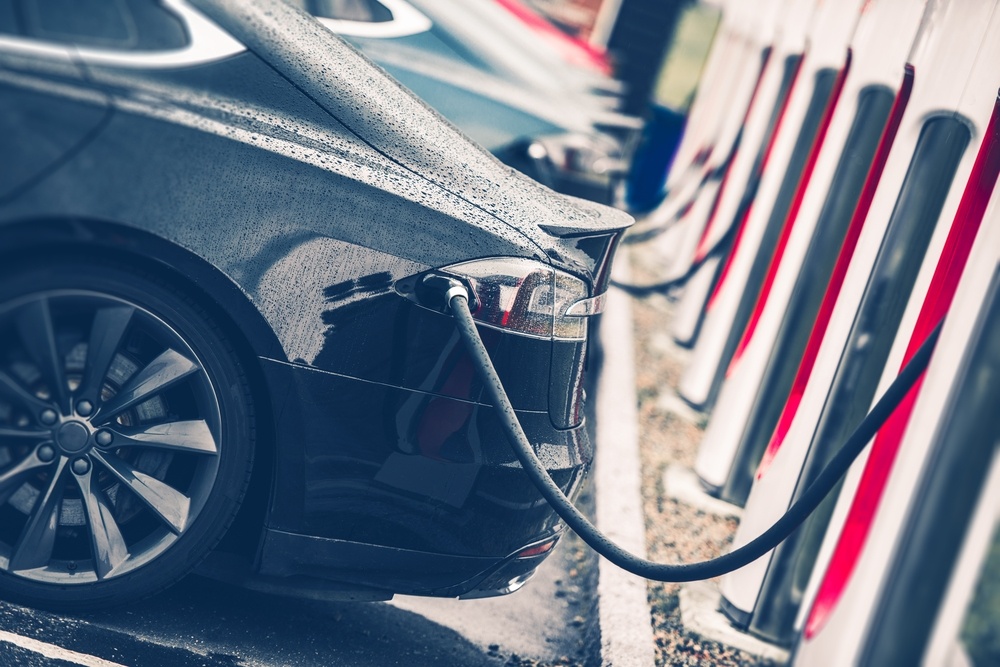Key Takeaways:
– Wealthy electric vehicle (EV) owners contribute to larger carbon footprints due to their luxurious lifestyle.
– Performance EV owners emit 10.2 tons of carbon dioxide yearly, above the 8.04 tons from gas or diesel vehicles.
– The more energy-demanding lifestyle of rich EV owners negates the lesser emissions advantage of electric cars.
Electric Vehicles and the Affluent: More Carbon Footprints?
The global shift towards green living has introduced new phrases to our vocabulary. Among them is ‘carbon footprint.’ This term describes how much energy we consume from fossil fuels. We would naturally assume that people who own electric vehicles (EV) are doing their bit to reduce their carbon footprints. Surprisingly, a recent study suggests otherwise.
In a thought-provoking twist, the research suggests that wealthy EV owners have larger carbon footprints compared to those who own traditional gas or diesel vehicles. The analysis puts the blame not on the type of vehicle they drive but on the luxury-filled, energy-consuming lifestyle they lead.
The Surprising Findings: Eco-friendly Cars, Not-so-Eco-friendly Owners
Researchers from the University of Turku, in Finland, delved into this irony. They discovered that EV owners, on average, leave a more substantial carbon footprint than those who drive gas or diesel cars.
Owning an EV has become a trendy badge for environmentally conscious celebrities and individuals, often signifying a commitment to combat climate change. Yet, the researchers suggest that purchasing a pricey EV might do more environmental harm than good.
The details, published in the PLOS Climate journal, clarify the offset. While EVs produce lower emissions, their high-end lifestyles command more energy, causing more significant global warming effects. In fact, EVs typically require 20-40% more energy than similar gas or diesel vehicles.
Breaking Down the Numbers: Carbon Emissions vs Vehicle Type
The study, undertaken by Nils Sandman, Elisa Sahari, and Aki Koponen, categorized EV owners into two groups based on their vehicle’s performance and features.
On average, owners of high-performance EVs contribute 10.2 tons of carbon dioxide per year. In contrast, those with gas or diesel vehicles contribute 8.04 tons. Even modest EV owners were found to emit 8.66 tons annually.
These findings emerged from a study involving around 4,000 Finnish participants. The respondents provided details about their lifestyle, including their transport choices, purchasing habits, and housing preferences, enabling the investigators to calculate their respective carbon footprints.
A Silver Lining: A Breed of Less Polluting EV Owners
The researchers did note an intriguing distinction between two types of EV owners. Those who prioritize their vehicle’s economy and reliability tend to pollute less, emitting only 7.59 tons of carbon dioxide per annum. Conversely, individuals more concerned about their vehicle’s performance contribute significantly more pollution, above any other group.
Thus, it is critical to recognize that while owning an EV is a step towards a green planet, reducing your carbon footprint involves a wholistic review of one’s lifestyle and energy consumption habits. As shown in the said study, owning an eco-friendly vehicle alone doesn’t guarantee a smaller carbon footprint if the rest of one’s lifestyle remains steeped in energy-consuming luxury and excess.
So, the real question we should ask ourselves is: Is it enough to switch to an EV without changing our lifestyle, or should we seek to be more sustainable overall? The answer is the key to combating climate change and creating a green and clean future for everyone.
